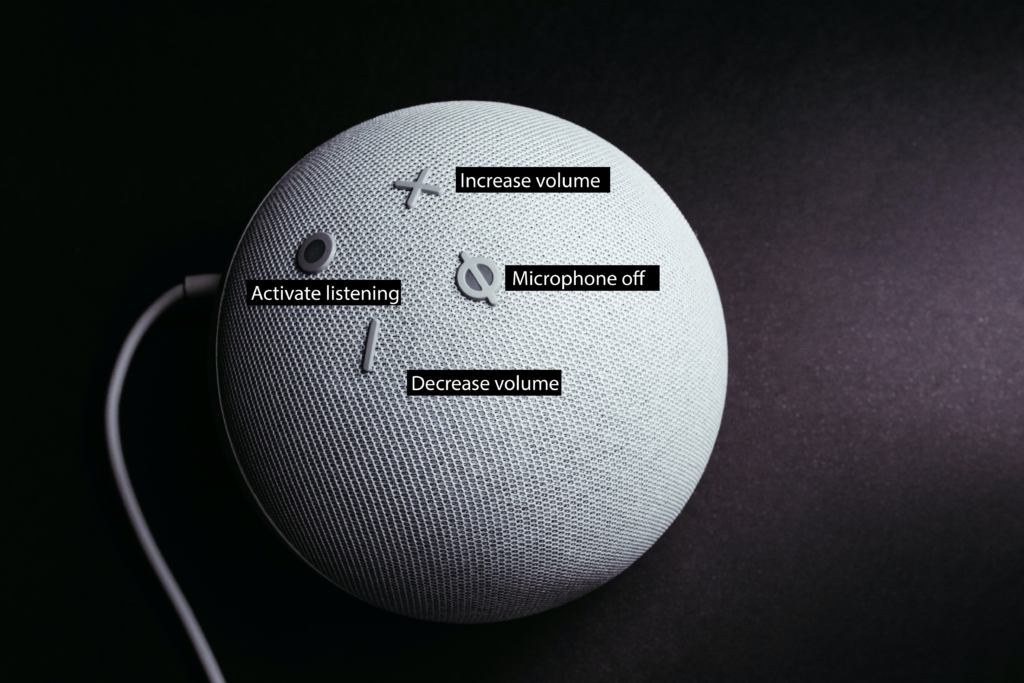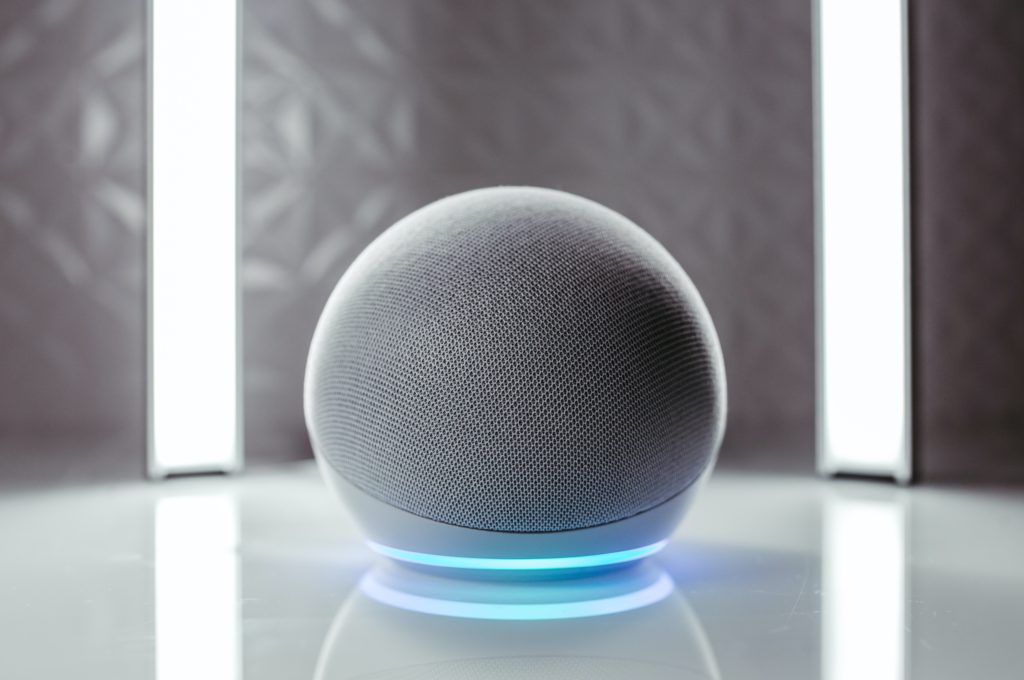Smart speakers are devices that act as a loudspeaker and voice-user interface with an integrated virtual assistant. The Echo Dot is a smart speaker with Alexa, the virtual assistant technology in Echo Dot that allows interaction through voice commands. Through Alexa, users can perform various tasks by talking to their smart speakers like searching for information, creating to-do lists, and shopping on Amazon.com, among others. This post aims to evaluate how users with disabilities may interact with some features of the Echo Dot.
Usability

The smart speaker works with a voice command, a “wake word” is spoken to activate device listening and the command is heard and responded to through action or sound. The device also contains physical buttons to increase and decrease the volume, mute the microphone and activate listening without a wake word. A light or sound indicator signifies that the device is listening to the user, which is a good alternative for people with visual disabilities, however, the voice command and response feature do not make this device completely inclusive.
Accessibility
The Echo Dot is an assistive technology that aligns with the social model and the functional solutions model of disability; it allows access to its features to certain users with disabilities, by providing the opportunity to participate in society.
However, the features of the Echo Dot may be inaccessible to people who are deaf or hard of hearing and people with speech disabilities. Alexa also does not respond well to users with accents that the device is not sufficiently trained in. Further, some people with cognitive disabilities may face challenges accessing this technology altogether.
Utility
In terms of utility, the Echo Dot can help users with disabilities perform a wide range of tasks, some of which are:
Controlling Smart Home Technology: People with certain physical disabilities, like wheelchair or crutch users, can access compatible home system devices through voice commands. It also keeps in mind the needs of users with temporary or situational disabilities, such as a person with an injured arm, or a mother carrying a child, and helps them control smart home technology hands-free.
Reading out information and Audiobooks: People with visual disabilities and people with cognitive disabilities like dyslexia or reading disabilities can use Alexa to have information and audiobooks read out to them. Users with situational disabilities can also benefit from this feature, for example, a recipe can be read out loud to a person occupied with cooking.
Setting reminders: The Echo Dot can be used to set reminders, which can be particularly useful for seniors, or people with cognitive disabilities. In these cases, it is important to make sure the user understands how to use the smart speaker and the steps to set a reminder, or they can take the help of a caregiver.
Affordability
The cost of an Echo Dot ($50 as of 2023) or any smart speaker can be considered moderate to high, which makes it inaccessible to a wide portion of users, making it a luxury and not a necessity. This is also assuming that users have access to the internet, to access the smart speaker. Further, the feature to control smart home devices come with the added cost of investing in smart home technology, which is considered very expensive.
Desirability

The minimalist design of the Echo Dot makes it an aesthetically pleasing addition to a home. It is a small, lightweight, and easy-to-carry device that comes in different colors and designs. Smart home technologies are currently trending and this product can be seen as an assistive device that users, who can afford it, would want to possess.
